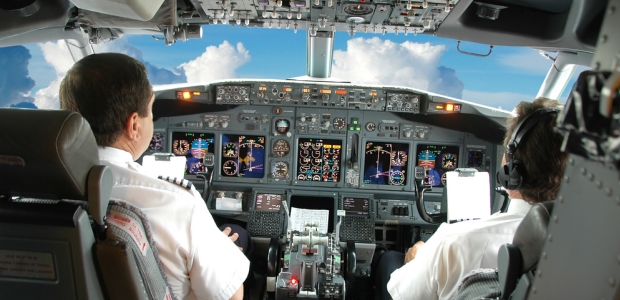
FAA Publishing Rule to Require Safety Management Systems
"Our commercial aviation industry is a world leader and model for risk mitigation, and I'm proud that so many airlines have embraced the SMS culture voluntarily. Now the FAA and the air carrier industry are taking the next step," FAA Administrator Michael P. Huerta said. "The FAA's workforce also is transitioning to a proactive, risk-based culture so we can effectively target our resources."
The Federal Aviation Administration issued a final rule Jan. 7 that will require most U.S. commercial airlines to have Safety Management Systems (SMS) in place by 2018, with the agency's announcement saying the rule "builds on the programs many airlines already use to identify and reduce aviation risk." Airlines will be able to design a system to match the size, complexity, and business model of their operations, according to the agency.
It describes an SMS as "the formal, top-down, organization-wide approach to managing safety risk and assuring the effectiveness of safety risk controls. SMS gives airlines a set of business processes and management tools to examine data gathered from everyday operations, isolate trends that may be precursors to incidents or accidents, take steps to mitigate the risk, and verify the effectiveness of the program. SMS requires compliance with technical standards but also promotes a safety culture to improve the overall performance of the organization. It uses four key components – safety policy, safety risk management, safety assurance, and safety promotion."
"Aviation is incredibly safe, but continued growth means that we must be proactive and smart about how we use safety data to detect and mitigate risk," said Anthony Foxx, the U.S. secretary of transportation. "SMS gives airlines the tools they need to further reduce risk in commercial aviation."
Airlines will have to submit their implementation plans to the FAA within six months, and the rule requires one accountable executive to oversee an SMS.
"Our commercial aviation industry is a world leader and model for risk mitigation, and I'm proud that so many airlines have embraced the SMS culture voluntarily. Now the FAA and the air carrier industry are taking the next step," FAA Administrator Michael P. Huerta said. "The FAA's workforce also is transitioning to a proactive, risk-based culture so we can effectively target our resources."
The U.S. airline industry and the federal government share a goal of reducing the U.S. commercial fatality risk by 50 percent from 2010 to 2025. "Our members are fierce competitors, but we do not compete on safety because we know it is our most important job, and there is nothing more important than the safe arrival of our passengers, crew, and cargo," said A4A President and CEO Nicholas E. Calio. "That is why our members adopted this approach long before it became a rule; our work is a driving force as to why the U.S. industry is the model for the world in aviation safety."
The Airline Safety and Federal Aviation Administration Extension Act of 2010 directed FAA to develop a rule requiring all Part 121 operators to implement SMS. "The rule is consistent with the International Civil Aviation Organization’s standards and responds to National Transportation Safety Board recommendations," according to the FAA, which estimates the rule will cost the airlines $224.3 million over 10 years and yield benefits ranging from $205 million to $472.3 million over 10 years. In addition, FAA is offering a federally developed and funded software system to help airlines implement their systems.